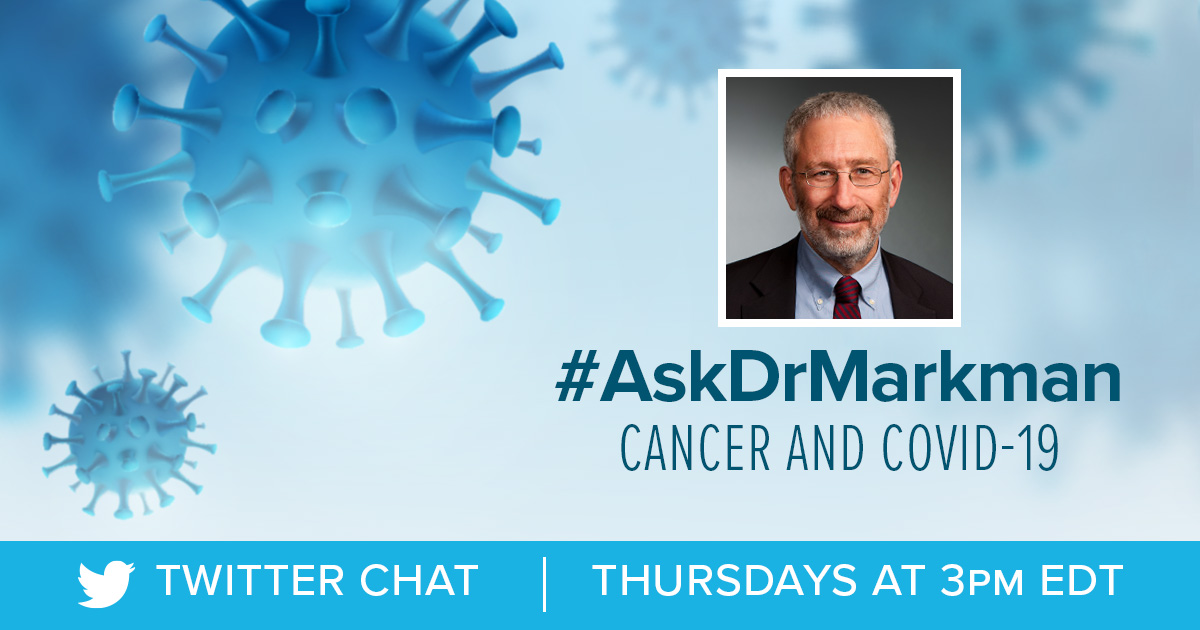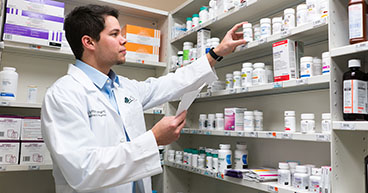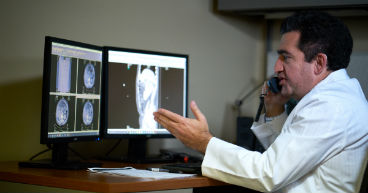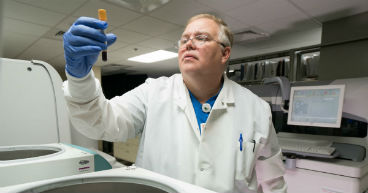
The COVID-19 pandemic has created a landscape of constantly evolving information and often confusing new developments. Cancer patients have many questions about how the virus may affect them, their access to ongoing treatments, and their overall health. Maurie Markman, MD, President of Medicine & Science at Cancer Treatment Centers of America® (CTCA), has launched a weekly Q&A hosted on Twitter to answer your questions, in real time and as questions are sent to us online and by phone. Follow us on #AskDrMarkman. Here’s this week’s chat:
QUESTION: I will soon undergo a stem cell transplant for my leukemia. My oncologist told me I will be very immunocompromised after the procedure. Should I take the same precautions the average person is taking to avoid COVID-19, or should I be more careful?
Answer: Because the stem cell transplant you will receive will dramatically impact your immune system, you will be at more than an average risk—not just of contracting the virus but of experiencing severe symptoms. For that reason, you must take extraordinary precautions, especially the first three months after the procedure—stay home, avoid contact with anyone other than a trusted caretaker, have your caretaker get your groceries, travel by car if you must travel at all. The U.S. Centers for Disease Control and Prevention (CDC) has tips on avoiding exposure for those with a compromised immune system.
Q: I’m in treatment for stomach cancer. If I get COVID-19, am I at risk of getting sicker than the average person?
A: Possibly. Patients with GI cancers, including stomach cancer, who are infected with COVID-19 may be more likely to have severe nausea and diarrhea and loss of appetite from the virus. Seek medical attention if and when you begin experiencing any GI-related or respiratory symptoms.
Learn why COVID-19 and GI symptoms are an added concern for cancer patients.
Q: I have delayed my annual mammogram since the COVID-19 pandemic began. Now that the government is Opening Up America, should I get the mammogram or keep putting it off?
A: If you are experiencing concerning symptoms, such as pain, bleeding or a lump, don’t hesitate to consult a doctor and get the mammogram. Delaying a possible diagnosis may have serious consequences. But if you have no symptoms or other concerns, you may be able to delay your mammogram a bit longer—but not for too long. Annual screenings are important to catching cancer early.
Learn more about the potential impact of cancer screening delays during the COVID-19 pandemic.
Q: My sister was recently diagnosed with COVID-19. Will she be immune to another infection with this virus?
A: Recent evidence suggests that essentially all patients infected with the virus, regardless of age, sex, severity of illness or other clinical factors, will develop measurable antibodies to COVID-19. While it’s not yet known for certain that such antibodies will protect against a future infection, evidence from similar viruses suggest these antibodies will be at least partially protective, although how long the benefit will last is still uncertain.
Q: Has the COVID-19 pandemic had an impact on the delivery of vaccines used for cancer prevention, like the HPV vaccine?
A: It is almost certain that routine vaccinations have been negatively impacted by disruptions in the delivery of non-COVID-19-related medical care, although specific data on HPV vaccine administration is not likely currently available. However, a recent report has noted there were 2.5 million fewer doses of childhood vaccines administered in the U.S. during the first four months of 2020 compared to the same period in 2019.
Q: I understand a medicine used to treat complications from CAR T-cell therapy for cancer patients is being tested as a treatment for COVID-19. Is this correct?
A: Yes. One theory for why certain patients with COVID-19 infections get so sick is that their immune system becomes overly stimulated, resulting in damage to normal tissue, a condition called cytokine release syndrome. This response can occur also in some cancer patients treated with CAR T. A medication now standardly used for this purpose is being examined in clinical trials in individuals with severe COVID-19 infection.
Q: My husband received a BCG vaccine as a child to prevent him from getting tuberculosis, and I did not. Does that mean he has some protection from COVID-19 that I do not?
A: We still don’t know. A recent study in Israel compared a large number of similarly aged individuals who got a BCG vaccine to prevent TB against those who didn’t. The study showed no evidence that those vaccinated were protected from COVID-19 infection. However, it is fair to conclude that this study is not necessarily the final answer to this question, as other data suggest BCG vaccination may enhance the immune response to infections other than TB.
Learn more about the research into BCG as a potential COVID-19 treatment of vaccine.
Q: We live a long distance from our son, who is undergoing cancer treatment. Is there anything we can do during this COVID-19 pandemic to help him?
A: This is a very important question. In fact, a recent report indicates that video telecommunication between cancer patients and caregivers who live more than an hour apart can decrease the patient’s stress and anxiety in the patient. In the COVID-19 pandemic, using video conferencing tools like Zoom, Skype or Google Meet between cancer patients and their families becomes even more important to reduce anxiety and unnecessary stress.
Q: My husband, who is a long-time smoker, claims smoking has no influence on his risk of a serious COVID-19 infection. I disagree. Who’s correct?
A: You are. A recent study from UC-San Francisco found that a smoker who becomes infected with COVID-19 has nearly twice the risk of experiencing progression of the disease process. Feel free to share the study with your husband. It may offer one more reason he (and other smokers) would choose to stop smoking.
Q: Are children with cancer who are infected with COVID-19 more likely to have serious symptoms compared to children who don’t have cancer?
A: While the information available to answer this important question is limited, the early results are encouraging. In a recent report from the Memorial Sloan-Kettering Cancer Center, pediatric cancer patients infected with COVID-19 had a very low rate of serious complications, similar to the previously noted relatively low risk in children who don’t have cancer.
If you’re a cancer survivor or in active treatment and are concerned about how COVID-19 may impact you or your care, please contact your care team.



